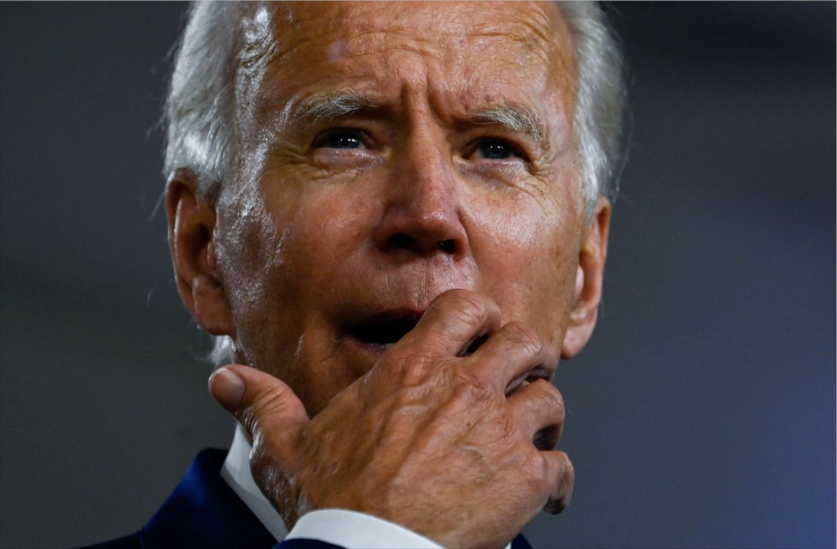
STRATEGIC ASSESSMENT. As results were being tallied in the 2022 midterm elections attention also turned toward Nov. 5, 2024, when the next presidential election will be held. Control of Congress and state houses around the nation is likely to have a major impact on who runs in 2024. Here’s what to know about the 2024 presidential election. Is Joe Biden running for reelection as president in 2024?
President Biden has indicated that he intends to run for reelection, but also emphasized that “it’s just an intention.” He said during an interview on ‘60 Minutes’ in September that “it remains to be seen” whether it was a “firm decision” to seek reelection. The Washington Post has reported that Biden and first lady Jill Biden have been meeting with advisors since September to prepare for a potential reelection campaign. Polls indicate that the president remains broadly popular within his own party.
Help-wanted signs are everywhere. Employers are posting nearly two job openings for every unemployed American. Hiring is on track for its second-strongest year in government records dating to 1940. And the economy grew solidly over the summer.
From certain angles, the nation’s economic picture looks like a healthy one.
But the scene is being photo-bombed by an unsightly intruder: Chronically high inflation. Surging prices are straining family budgets and inflicting hardship on the most economically disadvantaged households. What’s more, the Federal Reserve’s drive to tame inflation through much higher interest rates is raising the risk of a recession by next year.
U.S. President Joe Biden’s public approval rating dipped to 39% in a Reuters/Ipsos poll on Monday, reinforcing nonpartisan election forecasters’ expectations that his Democratic party was in for a drubbing in Tuesday’s midterm elections.
The two-day national poll found that Americans’ approval of Biden’s job performance had dropped by one point, nearing the lowest point of his presidency. Biden’s unpopularity is helping drive the view that Republicans will win control of the U.S. House of Representatives and possibly the U.S. Senate as well on Tuesday.
American voters are fractured politically and culturally ahead of Election Day, and they are anxious about where their country is heading — on inflation, abortion, immigration, crime, and much more. They also sense something more fundamental at stake at a time of rising mistrust of institutions and each other: the future of democracy.
Some Americans remain hopeful, but a fretful outlook emerges from interviews with more than two dozen Democratic, Republican and unaffiliated voters before Tuesday’s midterm elections — the first since followers of former President Donald Trump tried to halt the certification of President Joe Biden’s 2020 victory.
“This election is hugely consequential,” said Edward Foley, a professor at Ohio State University who directs its election-law program. “It’s a question of where our democracy is and how we are doing with our collective self-governance.”
Elections have consequences, so the saying goes. But usually those trotting out the words mean a loss of a woman’s right to abortion or a rise in crime, depending on the party affiliation of the speaker.
There are other consequences and one of them is that the end of an election cycle – which will come sometime a week from now when the votes are finally tallied – brings an end to uncertainty. And history suggests that is beneficial to financial markets.
Markets generally are positive in the months after the midterm elections, irrespective of which party is in power or which one prevails. This year, the polls are razor tight, and the outcome of which party controls the Congress may not be clear for a few days after Nov. 8.
Based on polling and predictions, the highest probability outcome at this point would appear to be a split, with Republicans gaining the House of Representatives and Democrats narrowly keeping the Senate. In either case, President Joe Biden would still be in the White House until 2025.
The white-hot US labor market is showing signs of cooling, with the Labor Department reporting Friday a slower pace of hiring and higher unemployment. While the closely watched October jobs report was strong by historical standards, it suggests a series of rate hikes by the Federal Reserve meant to cool the economy has, as yet, had only a limited impact on employers’ desire to hire more workers.
The report shows employers added 261,000 jobs in October and the unemployment rate rose to 3.7% from 3.5% in September. October marks the smallest monthly jobs gain for the US economy since December 2020. But it is also a solid gain by historical standards. The economy added an average of 183,000 jobs a month over the course of the decade before the pandemic.
World stocks stalled below recent seven-week highs on Wednesday, while the dollar rose as investors awaited the results of the closely watched U.S. midterm election. Bitcoin, the biggest cryptocurrency by market value, fell as much as 5 per cent, a day after sliding 11 per cent.
European stock markets and U.S. futures were lower. Meta Platforms Inc said on Wednesday the Facebook parent would let go of 13 percent of its workforce, more than 11,000 employees, in one of the biggest layoffs this year. Asian shares edge up as the U.S. midterm election results rolled in, with MSCI’s World Stock Index dipping below Tuesday’s seven-week peak.
Control of both chambers of Congress is still up for grabs Thursday morning, with the Senate coming down to a pair of uncalled toss-up races that appear set to take days to resolve — and the possibility that a runoff in Georgia could once again decide the majority.
And while Republicans still have the inside track to retake the House, a large number of the most competitive House seats remain uncalled, after the GOP failed to capture numerous swing seats the party expected to flip on Tuesday.
Democrat John Fetterman flipped Pennsylvania early Wednesday morning, giving his party 48 seats, while Sen. Ron Johnson (R-Wis.) secured reelection late Wednesday morning. That gives Democrats 48 seats and Republicans 49 — meaning whichever party wins two of the three outstanding contests in Arizona, Georgia — which is headed to another runoff — and Nevada will control the Senate (Toni Ervianto/many sources).





